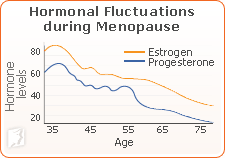Drenched sheets and pajamas, anxiety upon waking, and feelings of sudden cold are common characteristics of night sweats. However, these symptoms can be easily treated.
What Are Night Sweats?

Night sweats are also known as “nocturnal hyperhidrosis”. The sudden onset of night sweats is unpleasant and often requires you to change nightclothes and bed sheets in the middle of the night, as well as poor sleep and fatigue.
Symptoms of night sweats are easy to identify. Symptoms include:
- Excessive sweating
- A feeling of anxiety or disorientation
- Irregular heartbeat
Why Do These Symptoms Exist?

The symptoms of night sweats are often a side effect of the menopausal process. Menopause describes the period during which the female body makes the transition into a non-reproductive phase. During this time, many women experience night sweats because of the wildly fluctuating levels of estrogen, progesterone, and testosterone. Estrogen levels have been pinpointed as the primary cause of night sweats, as their decreasing levels trigger the hypothalamus to send incorrect signals to the nervous system. The nervous system falsely detects that body temperature is too high, thus prompting it to release large amounts of heat in the form of perspiration. This results in night sweats.
What Can I Do to Ease My Symptoms?
Certain lifestyle changes can produce dramatic reductions in the frequency and severity of symptoms experienced. For example, reducing saturated fat intake can ease irritation of the intestines, which may be responsible for increasing body temperature and causing night sweats. Cutting out alcohol can have the same effect. Spicy foods and hot beverages consumed before bed have the potential to raise the body's temperature, so those should be avoided in order to curb night sweats.
The following measures can also be taken to alleviate night sweats symptoms:

- Reducing smoking
- Keeping the bedroom or sleeping area cool and dry
- Staying hydrated throughout the day
- Wearing pajamas from natural fibers
- Using cotton sheets
Are There Alternatives?
There are other more complex treatments, including:
- Acupuncture
- Hormone replacement therapy
- Herbal remedies
All three have been shown to alleviate night sweats symptoms. For many women herbal remedies are the most effective and easily accessible. Talk to your doctor for more information.
Sources
- The National Institute of Health.(n.d). "Signs of the Menopausal Transition".Retrieved from www.nih.gov
- Boston Women's Health Collective. "Hot Flashes, Night Sweats and Sleep Disturbances". Our Bodies, Ourselves, 2006.
- Von Muhlen, DG, et al. "A community-based study of menopause symptoms and estrogen replacement in older women". Maturitas. Sept 1995; 22(2):71-8.


